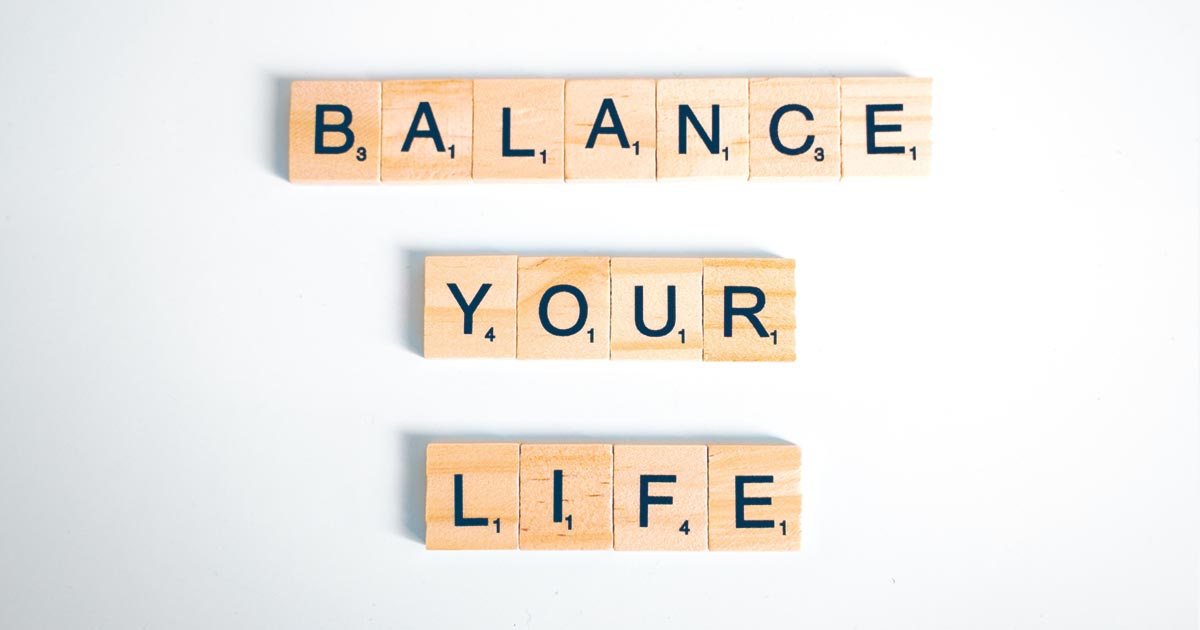[3-minute read]
We will spend nearly 100 000 hours of our lifetimes at work. That’s a staggering amount: about 11 solid years of tasks, emails, and meetings (that is, if you’re lucky enough to reach the global life expectancy age of 72). Wouldn’t you like those years to be spent meaningfully? Happily, even? For the next six weeks or so, we’re going to be exploring work, life, and the balance required to make both successful.
Downsides of poor balance in the workspace
A lot of what we’ll discuss centres on the value of different boundaries. Henry Cloud, a clinical psychologist, says: “A boundary shows me where I end and someone else begins, leading me to a sense of ownership.” Ownership, accountability, and responsibility are all key parts of being a team member who adds value. If you are boundaryless at work (saying yes to every task and then resenting it, working late, neglecting other areas of your life… the list goes on), chances are that your performance will suffer, along with your personal life. Let’s review some more elements of poor balance at work.
What’s in your head?
There is global and ongoing assessment of the attitudes of employees in the workplace (according to this study, 80% of people feel stress on the job, while 25% have felt like screaming or shouting because of job stress), but I don’t think we need statistics to come to the conclusion that work can be difficult. And in many cases, a prolonged negative experience of work leads to burnout, quitting, and deterioration of mental health.
Dropping the ball
When there’s too much on your plate at work, it’s easy to start letting things slip through the cracks; being late for meetings and missing deadlines, for instance. Disengagement should be a red flag that something’s not quite right. Maybe you’re too busy to even think about it – that’s another problem. Resentment builds where gripes and minor irritations are allowed to go unaddressed, affecting your ability to connect with your team.
Poor communication = poor teamwork
If you’re feeling stressed out and resentful, chances are that you’re not going to be very interested in connecting with your colleagues about their weekends, upcoming plans, and tasks that you’re working on together. This will slow down the effectiveness of the team’s projects, impacting everybody’s performance. While so many of us continue to work remotely, clear communication is imperative, especially in a team.
Downsides of poor balance in your personal life
Life is not all about work. Our personal lives are what make us who we are. Of course, our careers and goals at work can be extremely affirming, exciting, and energising, but there is still a living, breathing person who wakes up every morning and goes to sleep each night with a brain full of thoughts and a heart full of desires. What makes you, you? Let’s dig into the negative impact that poor work/life balance can have on our personal lives.
When you need a weekend to recover from the weekend
It’s time to roll out the buzzword of this post: boundaries! Are your weekends jam-packed with overdue work tasks as well as birthday parties, coffee dates, hikes, movies, and shopping? Do you get to Sunday night and desperately wish you had another day (just so you can catch up on last week’s work, never mind rest)? If so, it might be time to start thinking about how to carve out more spaces over weekends that are just for you and not for emails.
Dropping more balls
An imbalanced life is one where something has gone amiss. Are you unhappy, distracted, missing out on special moments? Are you too tired and overwhelmed by your work life that you aren’t present for your personal life? Something’s got to change. Overwork can be a symptom of avoiding other things going on in our lives, like a difficult relationship or situation. Work, as a concept and as a physical place, can be tied to our validation and identity as well. Often, good work is quantifiable; something you do is a success or it isn’t. So much of life is less concrete and therefore seems less certain. It can be easy to use work as our source of affirmation and value. But don’t be fooled – your value is determined by who you are, not what you do (is this becoming an Oprah special?).
What’s the solution?
To round off, here are some pointers to begin righting the ship and becoming more balanced as a whole person, not just a worker or a socialite:
- Set and keep boundaries. Leave your work at work
- Make time to rest with intention and delight
- Figure out why you keep saying yes to things when you want to say no
- Speak with colleagues about how they feel at work
- Use time- and activity-tracking apps to monitor how you use your time and figure out if there’s any waste that can be reduced
- Turn off notifications from time to time or set your Status to “Focus Time” if you want to knuckle down with an important task
- Have something to look forward to in your personal life: Meetups, cooking, hobbies, exercise, creative pursuits, phone calls, courses, downtime
There is plenty more to say and explore around these themes, so stick with us as we get into tools to maintain balance, tips for working from home, how to set goals (and stick to them), and preparing for a new year.
Did you learn something from this quick read? Would you like us to explore some of these digital tools in more detail? Tell us on social media: Facebook, Instagram, Twitter and LinkedIn.
P.S. Looking for a comprehensive payments solution that will get you paid anywhere, any time? Get Truevo. We can’t wait to connect with you.



